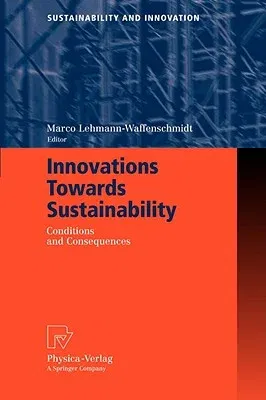Innovations Towards Sustainability: Conditions and Consequences (2007)Paperback - 2007, 6 September 2007

Qty
1
Turbo
Ships in 2 - 3 days
In Stock
Free Delivery
Cash on Delivery
15 Days
Free Returns
Secure Checkout
Part of Series
Sustainability and Innovation
Print Length
216 pages
Language
English
Publisher
Physica-Verlag
Date Published
6 Sep 2007
ISBN-10
3790816493
ISBN-13
9783790816495
Description
Product Details
Book Edition:
2007
Book Format:
Paperback
Country of Origin:
DE
Date Published:
6 September 2007
Dimensions:
23.39 x
15.6 x
1.24 cm
Genre:
Environmental Studies
ISBN-10:
3790816493
ISBN-13:
9783790816495
Language:
English
Location:
Heidelberg
Pages:
216
Publisher:
Weight:
331.12 gm

